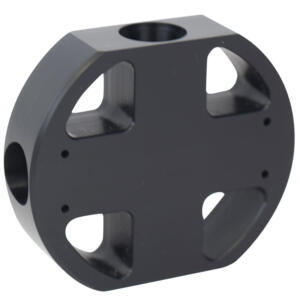Acetal vs Delrin
Acetal plastics and Delrin are widely favored by manufacturers because of their versatility, durability, and superior machinability. Although both materials have similar traits, they differ in key aspects. Acetal refers to a broader class of thermoplastics known for their low friction and high wear resistance, whereas Delrin is a specific type of acetal resin created by DuPont, offering improved performance and precision.
These materials are often compared because of their shared applications in industries like automotive, medical, and industrial equipment. However, understanding the differences between Acetal and Delrin can help you make an informed choice for your specific project needs. In many cases, Delrin outshines general Acetal plastics due to its superior strength, dimensional stability, and machining ease.
Acetal vs Delrin: Key Differences
When comparing Acetal vs Delrin, it’s essential to look at their unique properties to understand their applications and advantages. While both materials are durable and versatile, Delrin offers distinct benefits that make it the preferred choice for precision machining.

| Property | Acetal | Delrin |
|---|---|---|
| Machinability | Good, but may require more adjustments | Excellent; smooth finishes and tight tolerances |
| Strength | High tensile strength | Superior tensile and impact strength |
| Dimensional Stability | Prone to slight deformation under stress | Highly stable, even under load |
| Heat Resistance | Moderate; suitable for standard applications | Higher; performs well in high-temperature environments |
| Cost | Generally lower | Slightly higher due to advanced properties |
Advantages of Using Delrin
Delrin stands out from general Acetal plastics with key advantages:
- Dimensional Stability:
- Maintains shape under stress and load
- Ideal for precise, high-performance parts
- Enhanced Strength:
- Higher tensile and impact strength
- Suitable for demanding applications
- Low Friction:
- Smooth surface reduces wear and tear
- Perfect for gears, bearings, and moving components
- Heat Resistance:
- Performs reliably at higher temperatures
- Suitable for extreme environments
Applications of Acetal Plastic vs Delrin
Both Acetal plastics and Delrin excel in different applications based on their unique properties. Here’s how they are commonly used:
Acetal Plastic Applications
- Consumer Products: Acetal is ideal for handles, clips, and fasteners where cost-efficiency is critical without compromising durability.
- Electrical Components: Its excellent electrical insulation properties make Acetal suitable for insulators, housings, and other non-precision components.
Delrin Applications
- Automotive: Delrin is perfect for gears, bushings, and fuel system components, where strength and dimensional accuracy are essential.
- Aerospace: Lightweight and stable, Delrin is widely used in parts requiring durability and resistance to stress.
- Industrial Equipment: Bearings, valves, and high-precision parts benefit from Delrin’s low friction and superior machinability.
Why Choose Jaco Products for Delrin Machining
Jaco Products is a leader in machining both Delrin and Acetal plastics, offering unmatched expertise and advanced capabilities to meet the needs of diverse industries. With decades of experience, they deliver precision-crafted components with tight tolerances, smooth finishes, and tailored designs. Their commitment to quality ensures reliable, high-performance results, making them the trusted choice for complex projects requiring these versatile materials.

